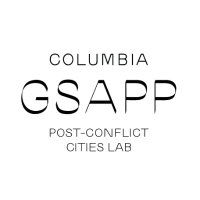
Columbia GSAPP Post-Conflict Cities Lab
@gsapppccl
A research initiative focused on developing equitable, inclusive, and socially-cohesive post-conflict cities.
Based at @ColumbiaGSAPP
Led by Prof. @hibabouakar
ID: 1187095138939686912
https://www.arch.columbia.edu/news/181210/post-conflict-cities 23-10-2019 19:55:47
20 Tweet
66 Followers
83 Following












The Post-Conflict Cities Lab is in this week’s Columbia University News featuring a chat with Columbia GSAPP’s Dean Amale Andraos, lab director & planning faculty @hibabouakar, & architecture faculty Z about the lab’s visions & projects. Check it out: news.columbia.edu/news/architect…








Over 10 years after the country's civil war ended, Sri Lankan Tamil women are still fighting for their ancestral land. Al Jazeera English aje.io/5bb8q